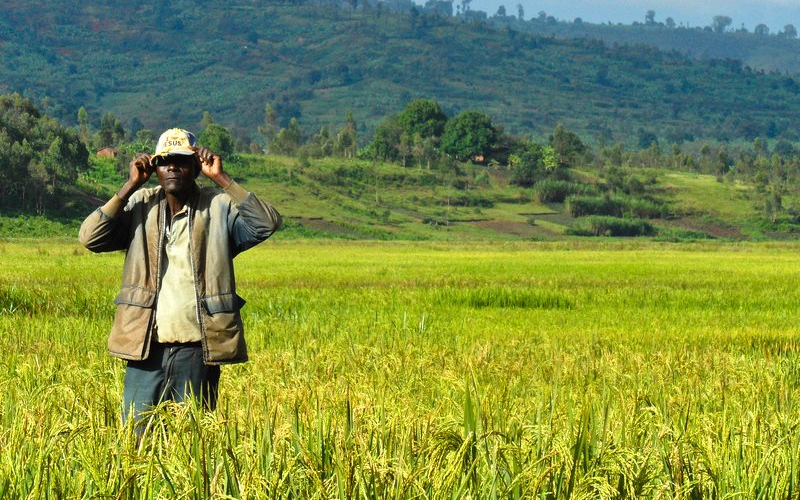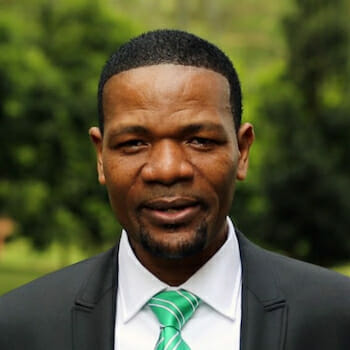
Paris Agreement and Africa: Unlocking Opportunities to Scale out Clean Energy
Based on the latest scientific findings which include the 2016 UN Environment Emissions Gap Report, the globe is on a warming trajectory set to exceed the 2°C warming thresholds set by the Paris Agreement. 2016 was the hottest year in recorded history.
The projected impacts of this trajectory translate into unprecedented adaptation costs for Africa. Accordingly, the 2015 UN Environments Africa Adaptation Gap Report 2 notes astronomical adaptation costs of $50 billion annually by 2050 for an ideal case of holding warming below 2°C. This impending financing gap is not matched by current resource mobilization which is mostly international.
Given the slow pace and unpredictability of international funds, reliance on international public finance alone is a risky strategy. Africa needs to also look internally to complement international sources. The 2015 Africa Adaptation Gap Report concluded that Africa could raise up to $3 billion annually domestically for adaptation by 2020.
Innovative climate finance for Africa
68% of countries in Africa have ratified the Paris Agreement and deposited their Nationally Determined Contributions (NDCs) with the UNFCCC. Up to 60% of these NDCs are land based, focusing on Ecosystem based Adaptation-Driven Agriculture and on Clean Energy, focusing on harnessing the continents clean energy potential. This strategic focus of Ecosystem based Adaptation-Driven Agriculture and Clean Energy which can be amalgamated to actualize clean energy powered agro-industries in Africa represent a catalytic approach to implement Africa’s NDCs.
This novel approach is critical to building both biophysical resilience by enhancing ecosystems and offsetting future carbon emissions, as well as socioeconomic resilience by creating income opportunities especially for the youth who currently constitute above 60% of the continent’s population.
Fintech: the combination of the Information Communication technology (ICT) and financial services, popularly known as fintech, provides a test case of innovatively financing Article 4 on mitigation by offsetting carbon from electricity generation through prioritizing clean electricity as targeted by the NDCs.
For example in Kenya, M-Kopa, a pay-as-you-go decentralized solar solutions company, is leveraging on the M-Pesa mobile money solution to provide flexible payment options based on client financial transaction records for acquisition of domestic solar lighting solutions. Through this model, M-Kopa has electrified up to 400,000 rural homes across East Africa in direct fulfillment of the NDC priority to expand clean energy use while offsetting carbon in line with Article 4 of the Paris Agreement.
Building on this success, off-shoots of viable models to finance off-grid clean energy for industrial applications should be targeted for powering EBA-driven agriculture value addition.
Optimize Africa’s agro-value chains
Land & ecosystems degradation means Sub-Saharan Africa food loss due to agro-ecosystem degradation is estimated as high as 6.6 million tonnes of grain annually, enough to meet annual calorific needs of approximately 31 million people. Low value addition means Africa’s average annual cereal grain loss is high, estimated at $4 billion annually. In 2010, the UN FAO estimated Africa’s cumulative PHLs of cereals, roots and tubers, fruits and vegetables, meat, milk and fish to be about 100million tonnes with total value of $48 billion. When juxtaposed with Africa’s $35 billion food import bill in 2011, recovering these losses would essentially eliminate the need for imports without increasing production while injecting an extra $35 billion to capitalize other sectors of the continent’s economy. Amalgamating on-farm Ecosystems Based Adaptation approaches (EBA) with clean energy for value addition will mean the region eliminates current losses along the entire agro-value chain to potentially save up to $35 billion in annual food imports.
Improve tax administration capacity: Curtailing Illicit Financial Flows (IFFs) estimated at $50-60 billion annually, significantly attributable to tax evasion in Africa’s natural capital/environmental assets will recoup resources for investment in the catalytic areas capable of unlocking multiple SDGs. Improved tax administration is a key strategy to eliminate IFFs. These recouped revenues could, through targeted policies, be invested in NDCs implementation aimed at maximizing the catalytic areas.
Maximize diaspora remittances for the catalytic areas: Annual remittances from Africans in the diaspora have risen to over 2% of continental GDP at over $41 billion. These monies go directly to households. To ensure they contribute to accelerating actualization of SDGs, governments need to ensure recipients of diaspora funds have opportunities to invest them in the catalytic area. For this, Ministries of Environment could work with Ministries of Finance to develop policy incentives for banks to develop loan products for enterprises based on the catalytic sectors and targeted at recipients of diaspora remittances. Such loan facilities should offer competitively priced/low interest loans to recipients of these diaspora funds based on their remittance transaction records and tied to investment in enterprises in the catalytic areas of EBA driven agriculture and linkage to clean energy powered value addition.
Finally…
Faced with daunting financing needs, it is Africa’s moral and economic responsibility to take active steps to create a more sustainable financing model for Africa’s climate action and development. As Africa continues to lobby for international support, it should not be forgotten that in the long-term, a sustainable financing model will not be achieved through reliance on international funds only. Africa urgently requires funding for climate resilient development and plugging IFFs and other leakages as a good starting point. In short, the answer to Africa’s financing is clear: the efforts have to be internal and if this is done, the continent may well be on the brink of a transformation for the collective benefit of all. This is what we must do beginning today.

